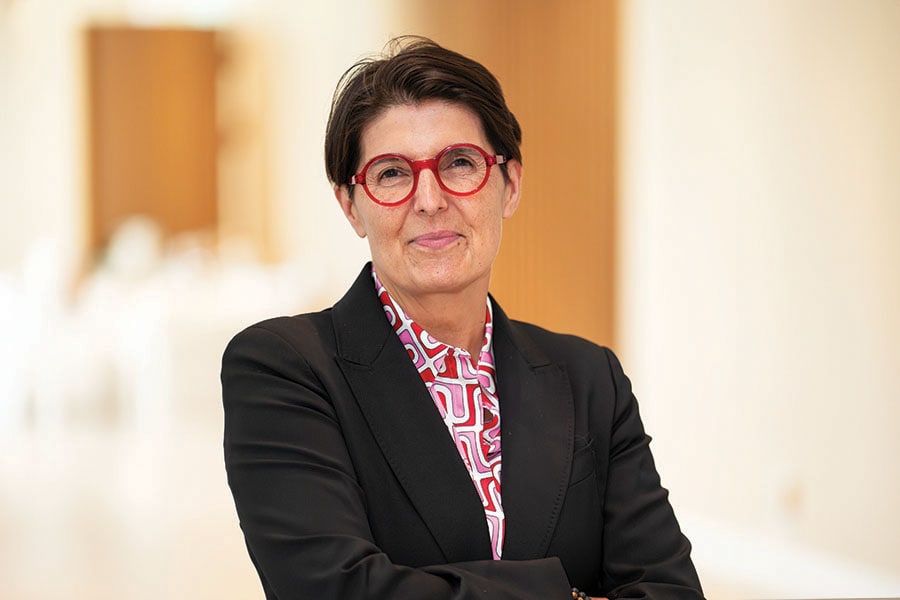
More Indian viewership for Neeraj Chopra's Tokyo triumph than for entire Rio Olympics: IOC's Anne-Sophie Voumard
Voumard, the managing director of IOC's Television And Marketing Services, on the growth of India as an Olympics market, exploring newer revenue channels, and the build-up to Paris 2024, the first Olympic Games in the post-pandemic era
 Anne-Sophie Voumard, MD of the International Olympic Committee’s (IOC) Television And Marketing Services (TMS)
Image: IOC/Greg Martin
Anne-Sophie Voumard, MD of the International Olympic Committee’s (IOC) Television And Marketing Services (TMS)
Image: IOC/Greg Martin
It’s nine months to the Olympic Games in Paris, but Anne-Sophie Voumard, the managing director of the International Olympic Committee’s (IOC) Television And Marketing Services (TMS), isn’t worried.
“If there’s anything that keeps me up at night, it’s the excitement about what the Paris Games will deliver for the athletes, the fans and the local communities,” she says, while speaking to Forbes India on the sidelines of the 141st IOC session in Mumbai.
Voumard, a qualified lawyer, joined the TMS in 2009, and has been the vice-president of the broadcast and media rights, working alongside Timo Lumme, whom she now succeeds. As the managing director of the TMS, IOC’s commercial programme, she’s not only building up to Paris 2024, the first Olympic Games in the post-pandemic era, but also navigating a geopolitical terrain fraught with the war in Ukraine and, more recently, between Israel and the Hamas. Voumard admits the “tectonic plates have moved post the pandemic”, but is confident that, with the robust legacy that she has inherited, the IOC will be ready to face the new realities. “Geopolitical imbroglios haven’t affected the IOC’s commercial goals,” she says. Edited excerpts from the interview:
Q. In January, you took over from Timo Lumme as the managing director of IOC’s Television and Marketing Services (TMS). As we head into the Paris Games next July, what priorities have you set for yourself?
I must say I was lucky enough to inherit a great legacy. The IOC has an extremely robust commercial programme which Timo worked very hard in establishing. So I have to recognise that the legacy is stable and strong. Nevertheless, like all of us, the last few years have changed quite a lot of things for us at the IOC, including from a commercial and economic standpoint. So, while my big priority is to build on the very strong legacy that we have in our hands, at the same time, we don't be not be complacent–we want to structure our organisation and commercial programmes for the future to be able to respond to the realities of today’s world that have been shaken after years of the pandemic. We do see those tectonic plates moving and we have to be ready as an organisation to face this new context.








